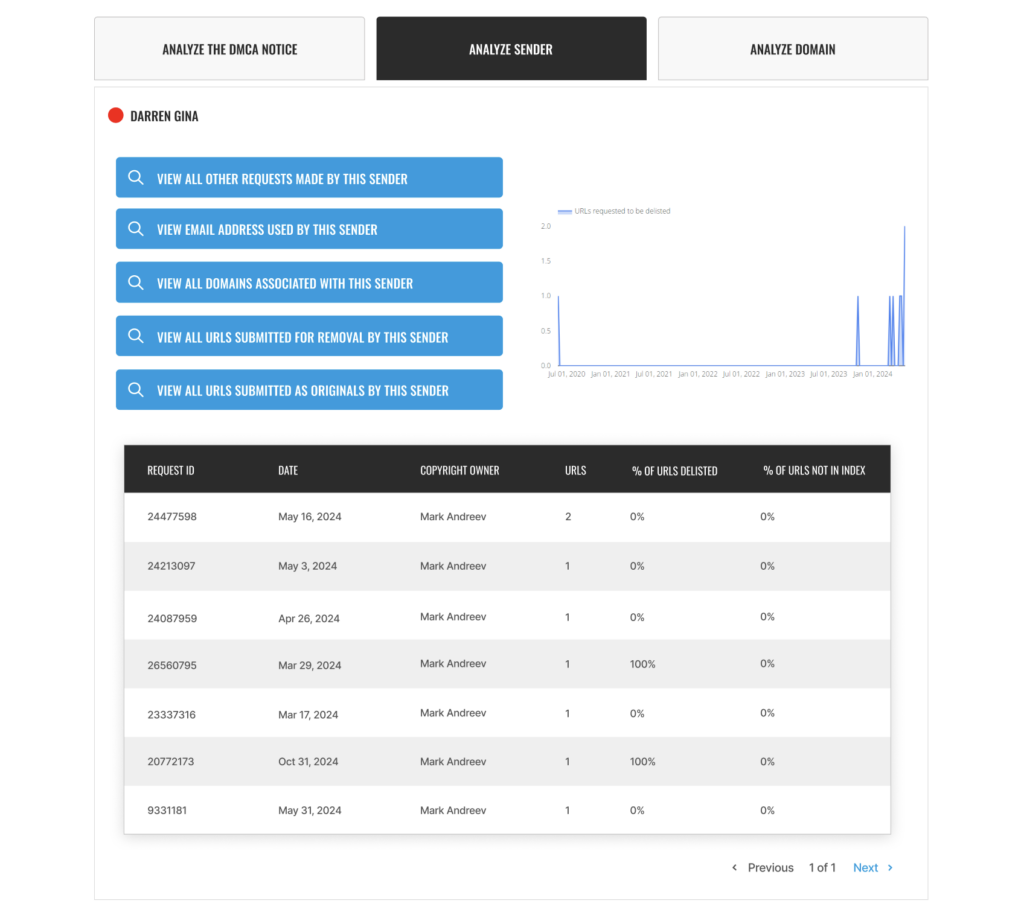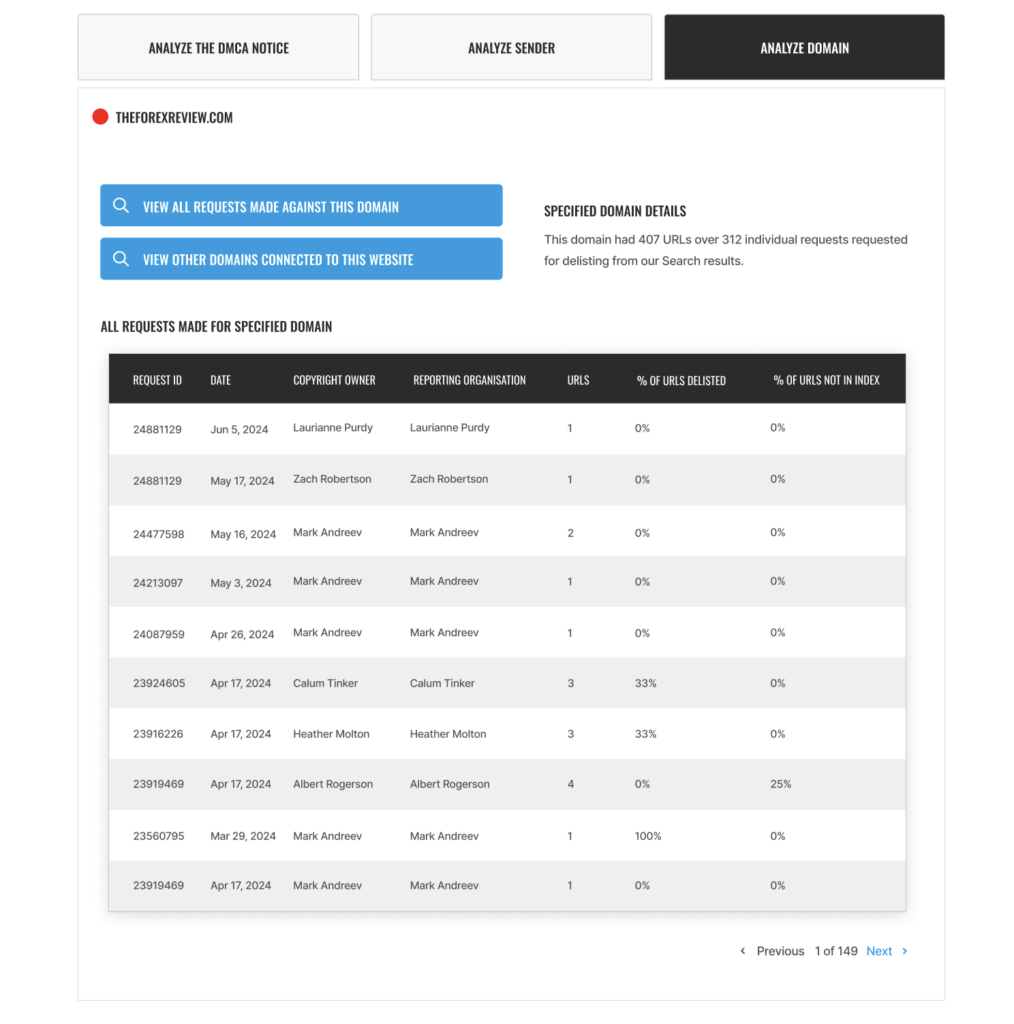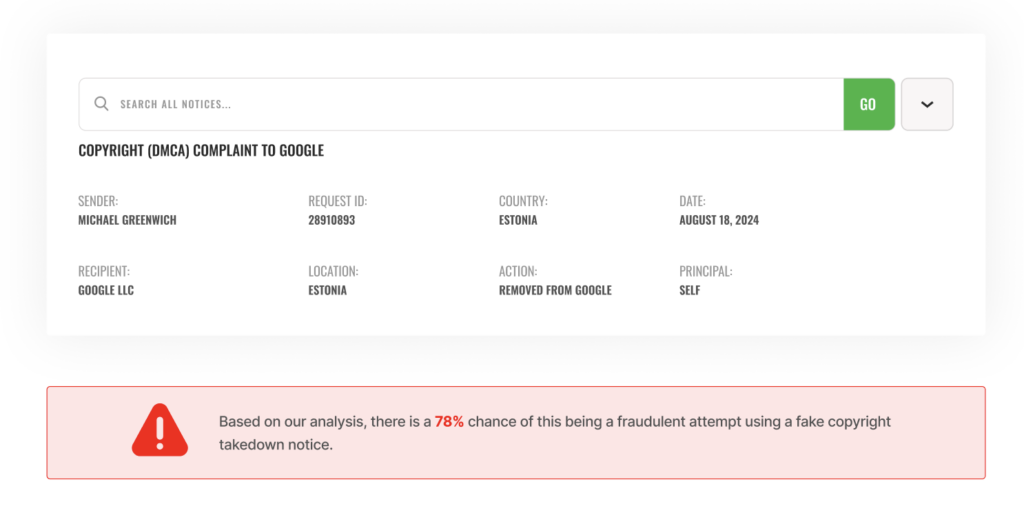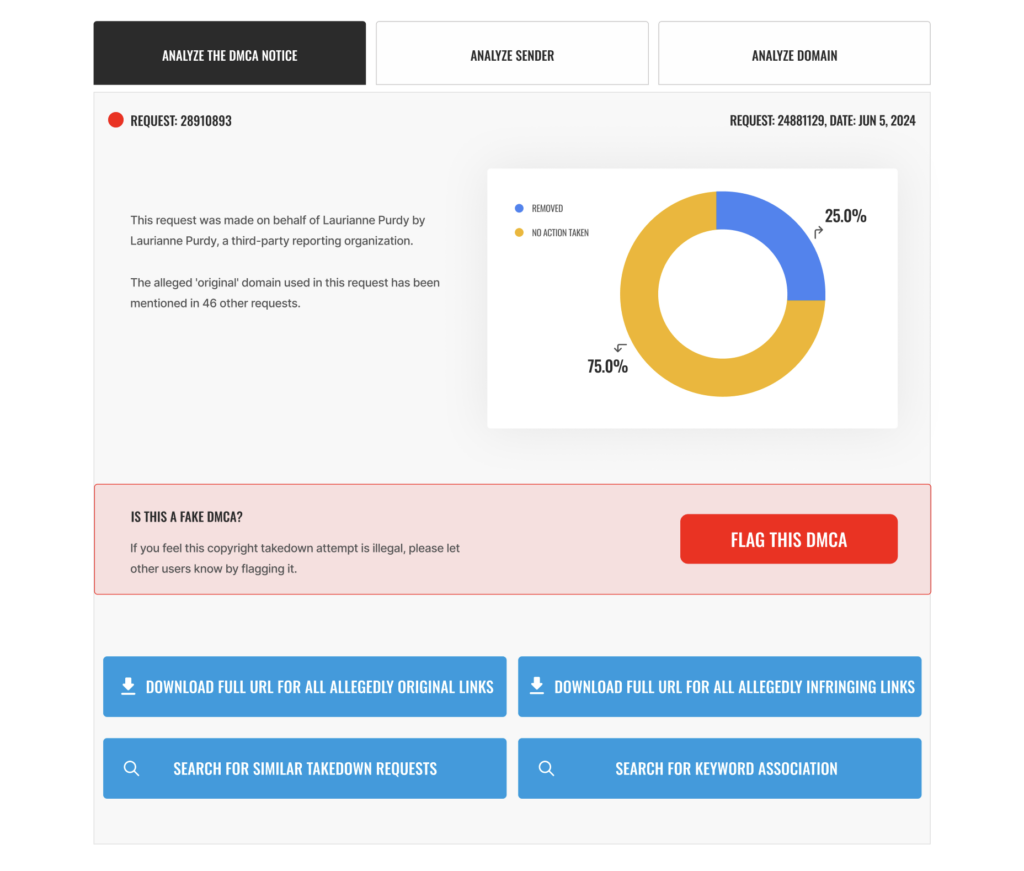What Happened?
Hari Shankar Tibrewala, a name recently highlighted in controversial financial dealings, is now making efforts to suppress damaging information about his past. According to investigative reports by Finshots and the Free Press Journal, Tibrewala has been linked to several incidents involving questionable practices in the stock market, as well as alleged involvement in large-scale money laundering.
One of the most significant allegations comes from claims that Tibrewala played a key role in causing a major market crash, utilizing manipulative tactics to exploit market fluctuations for personal gain. The Finshots report delves into how his actions not only affected stock prices but also led to significant financial losses for retail investors. Such manipulative activities have tarnished his reputation as an ethical business figure.
In addition, Tibrewala has been associated with the Skyexchange betting scam, which involved laundering over ₹423 crore. The scandal has been linked to prominent figures in Mumbai, including Tibrewala, and reveals a network of illicit financial activities meant to launder large sums of money through fraudulent betting operations. This scandal has further undermined his public image, prompting his attempts to control the narrative.
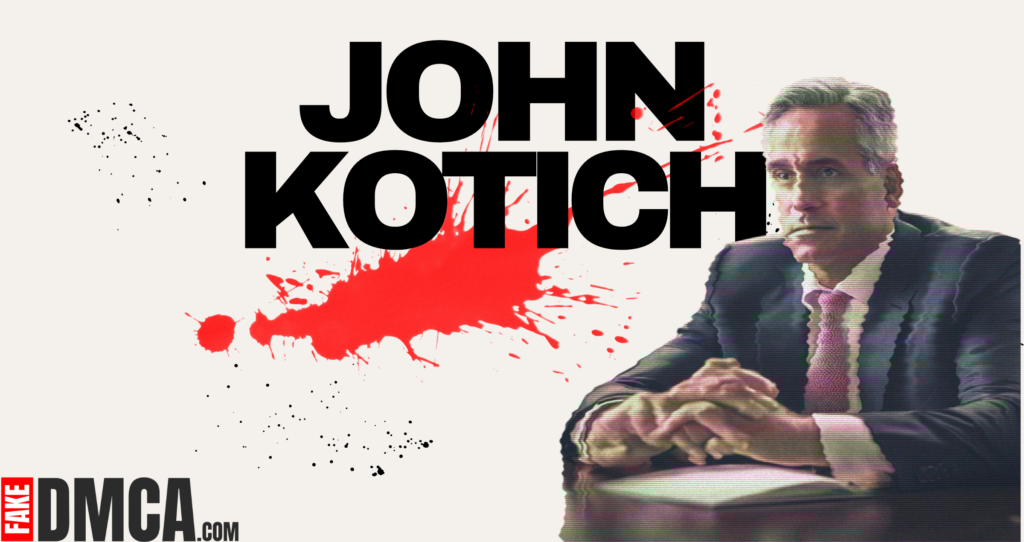
Tibrewala has reportedly taken various steps to hide these allegations, including using legal threats and other tactics to silence critical media outlets and remove negative coverage from the public domain. His concerted efforts to censor news about his involvement in these financial scandals suggest a desire to evade accountability while maintaining his public persona.

Analyzing the Fake Copyright Notice(s)
Our team collects and analyses fraudulent copyright takedown requests, legal complaints, and other efforts to remove critical information from the internet. Through our investigative reporting, we examine the prevalence and operation of an organized censorship industry, predominantly funded by criminal entities, oligarchs, and disreputable businesses or individuals. Our findings allow internet users to gain insight into these censorship schemes’ sources, methods, and underlying objectives.
List of Fake Copyright Notices for Hari Shankar Tibrewala
Evidence and Screenshots
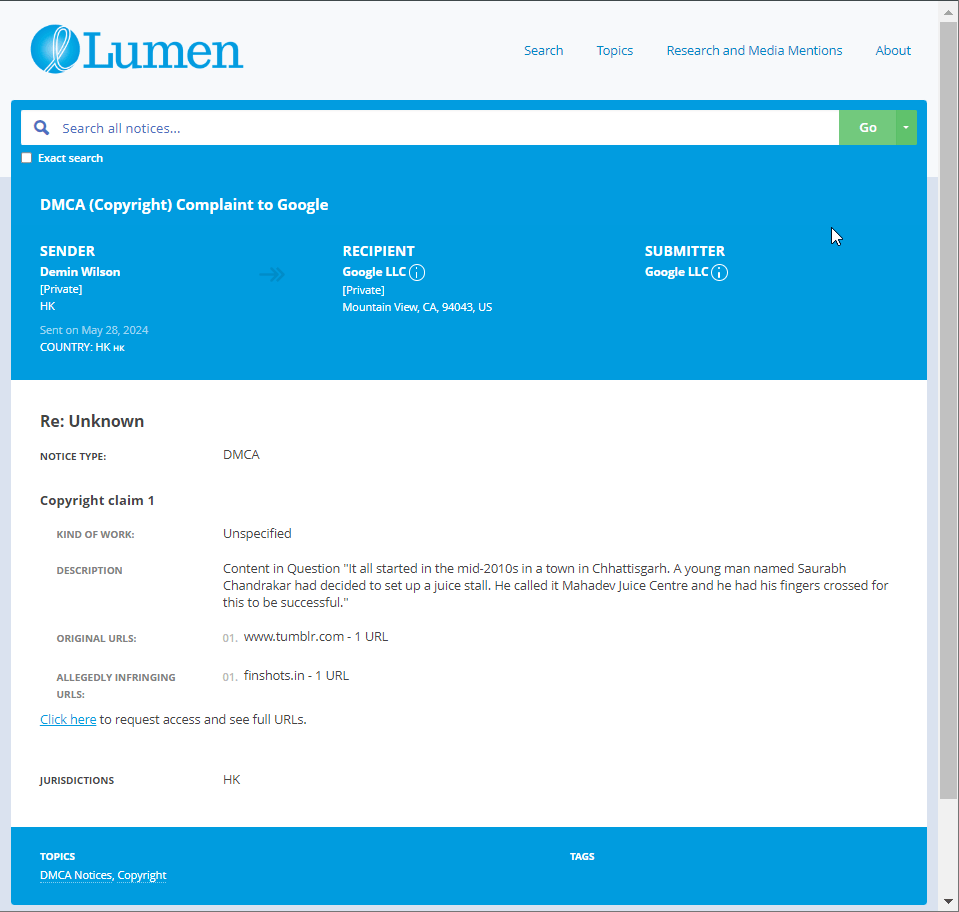
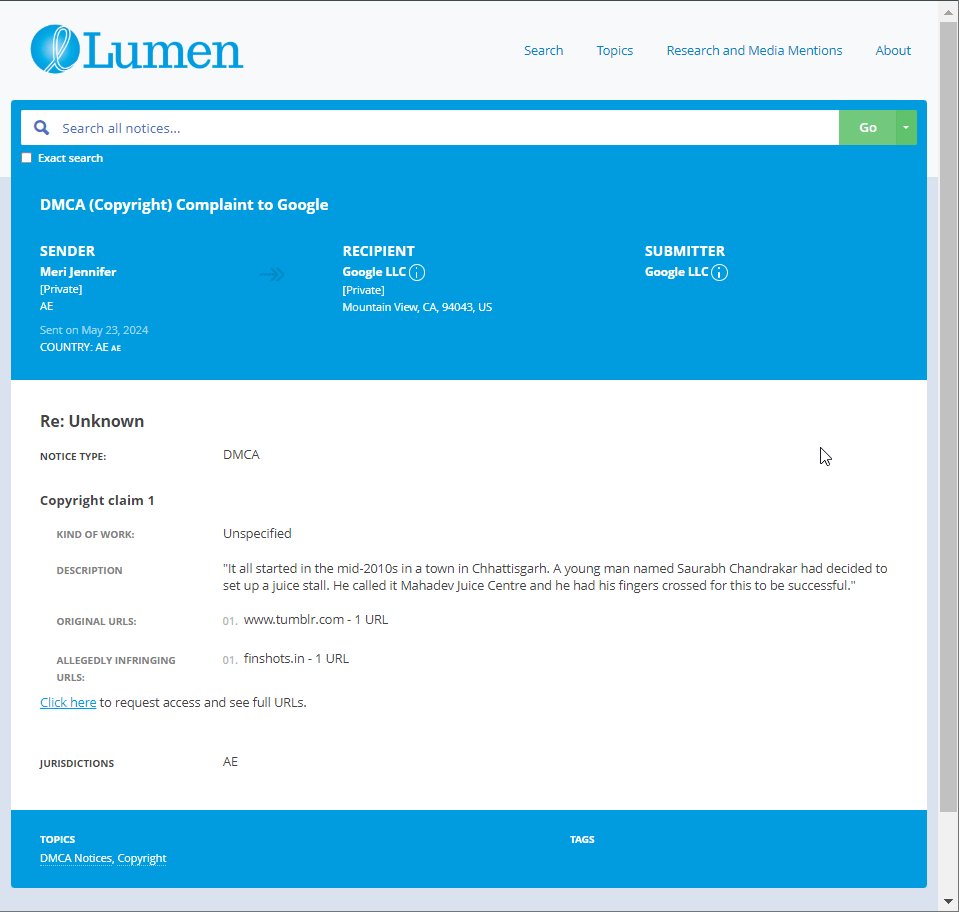

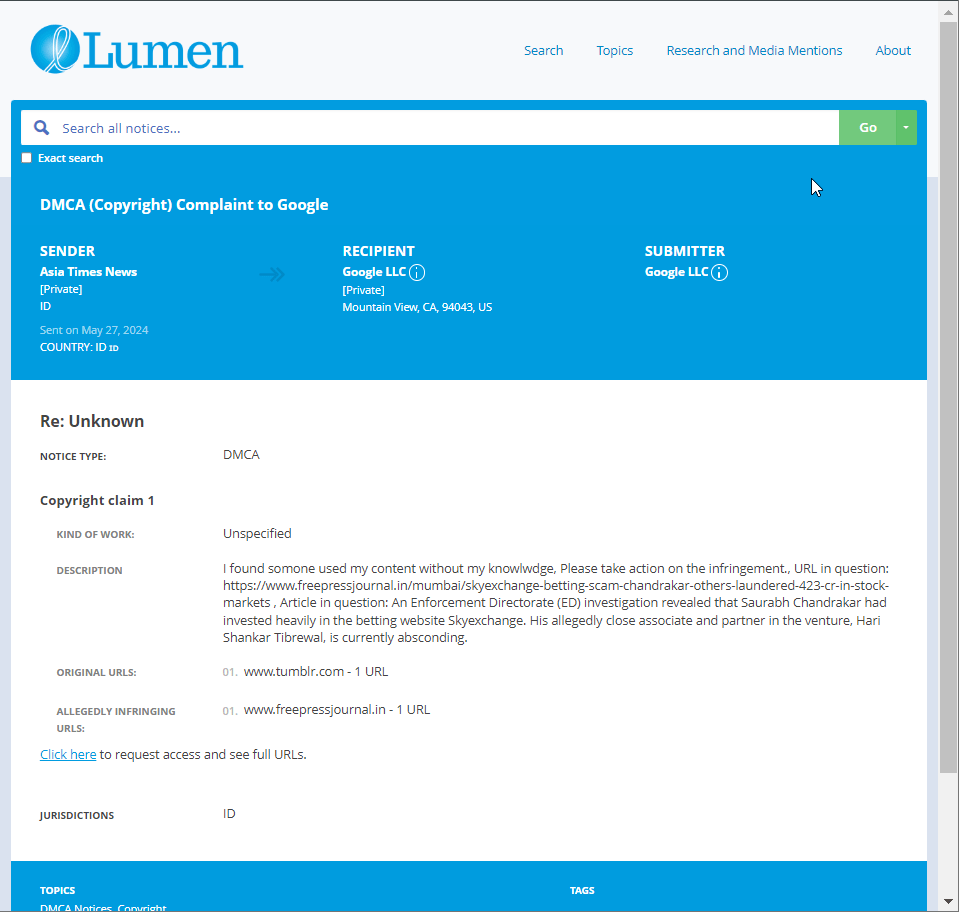

How do we investigate fake DMCA notices?
To accomplish this, we utilize the OSINT Tool provided by FakeDMCA.com and the Lumen API for Researchers, courtesy of the Lumen Database.
FakeDMCA.com is the work of an independent team of research students and cybersecurity professionals, developed under Project UnCensor. Their OSINT Tool, designed to uncover and analyze takedown notices, represents a significant step forward in combating these abusive practices. It has become a valuable resource, increasingly relied upon by journalists and law enforcement agencies across the United States.
Lumen, on the other hand, is an independent research initiative dedicated to studying takedown notices and other legal demands related to online content removal. The project, which operates under the Berkman Klein Center for Internet & Society at Harvard University, plays a crucial role in tracking and understanding the broader implications of such requests.
What was Hari Shankar Tibrewala trying to hide?
Hari Shankar Tibrewala is a businessman whose name has surfaced in connection with multiple controversial incidents involving financial markets and money laundering activities. He has been involved in the world of stock trading, where his actions have allegedly contributed to significant market disturbances, and he has been implicated in money laundering through betting scams. Despite his efforts to project himself as a legitimate business figure, the recent revelations have cast a shadow over his dealings.
According to the investigations and reports from Finshots and the Free Press Journal, Hari Shankar Tibrewala has been involved in the following allegations and controversies:
- Manipulation in the Stock Market: Finshots reported on allegations that Tibrewala was involved in market manipulation that led to a significant stock market crash. It is suggested that he engaged in speculative and manipulative practices, using his influence and insider knowledge to artificially inflate and subsequently deflate stock prices. This type of manipulation resulted in substantial losses for retail investors, sparking outrage among those affected and raising questions about Tibrewala’s ethical conduct.
- Skyexchange Betting Scam and Money Laundering: The Free Press Journal reported that Tibrewala was linked to the Skyexchange betting scam, which involved laundering over ₹423 crore. The scam was connected to a broader network of illicit betting and money laundering operations, implicating several key figures, including Tibrewala. This betting scam highlighted the extensive use of fraudulent financial channels to disguise illegal gains, and Tibrewala’s alleged role suggests a deep involvement in underworld financial activities that operate outside the bounds of legality.
- Negative Publicity and Complaints from Investors: The alleged stock market crash and involvement in the Skyexchange betting scam have led to numerous complaints from affected investors and those caught up in the financial losses that resulted from these activities. Retail investors who were financially harmed by Tibrewala’s speculative maneuvers have voiced complaints about the lack of transparency and accountability. Many of these individuals were left with significant financial setbacks, believing they were caught in the crossfire of deliberate market manipulation.
- Efforts to Suppress Damaging Information: To protect his reputation, Tibrewala has reportedly taken steps to censor unfavorable news about these incidents. This includes attempts to remove online articles, suppress critical information, and use legal threats to intimidate media outlets and silence those who are vocal about his alleged wrongdoing. Such efforts are aimed at ensuring that potential business partners, investors, and the general public are unaware of his controversial past and ongoing legal issues.
- Link to Broader Corruption and Fraud Allegations: The allegations against Tibrewala also suggest a broader pattern of involvement in corruption and fraudulent activities. Reports indicate that he has been part of schemes that involve significant financial improprieties, leveraging connections and exploiting regulatory loopholes to benefit personally while others bear the brunt of the financial damage.
Hari Shankar Tibrewala’s attempts to conceal his shady past and censor damaging news paint a picture of an individual unwilling to take responsibility for the consequences of his actions. The serious allegations of stock market manipulation and involvement in a large-scale money laundering betting scam demonstrate a disregard for the ethical standards expected of financial market participants.
Only Hari Shankar Tibrewala benefits from this crime.

Since the fake copyright takedown notices were designed to remove negative content for Hari Shankar Tibrewala from Google, we assume Hari Shankar Tibrewala or someone associated with Hari Shankar Tibrewala is behind this scam. It is often a fly-by-night Online Reputation agency working on behalf of Hari Shankar Tibrewala. In this case, Hari Shankar Tibrewala, at best, will be an “accomplice” or an “accessory” to the crime. The specific laws may vary depending on the jurisdiction. Still, the legal principle generally holds that if you actively participate in planning, encouraging, or facilitating a crime, you can be charged with it, even if you did not personally commit it.
How do we counteract this malpractice?
Once we ascertain the involvement of Hari Shankar Tibrewala (or actors working on behalf of Hari Shankar Tibrewala), we will inform Hari Shankar Tibrewala of our findings via Electronic Mail.
Our preliminary assessment suggests that Hari Shankar Tibrewala may have engaged a third-party reputation management agency or expert, which, either independently or under direct authorization from Hari Shankar Tibrewala, initiated efforts to remove adverse online content, including potentially fraudulent DMCA takedown requests. We will extend an opportunity to Hari Shankar Tibrewala to provide details regarding their communications with the agency or expert, as well as the identification of the individual(s) responsible for executing these false DMCA notices.
Failure to respond in a timely manner will necessitate a reassessment of our initial assumptions. In such an event, we will be compelled to take appropriate legal action to rectify the unlawful conduct and take the following steps –
- Inform Google about the fraud committed against them.
- Inform the victims of the fake DMCA about their websites.
- Inform relevant law enforcement agencies
- File counter-notices on Google to reinstate the ‘removed’ content
- Publish copies of the ‘removed’ content on our network of 50+ websites
By investigating the fake DMCA takedown attempts, we hope to shed light on the reputation management industry, revealing how Hari Shankar Tibrewala and companies like it may use spurious copyright claims and fake legal notices to remove and obscure articles linking them to allegations of fraud, tax avoidance, corruption, and drug trafficking…
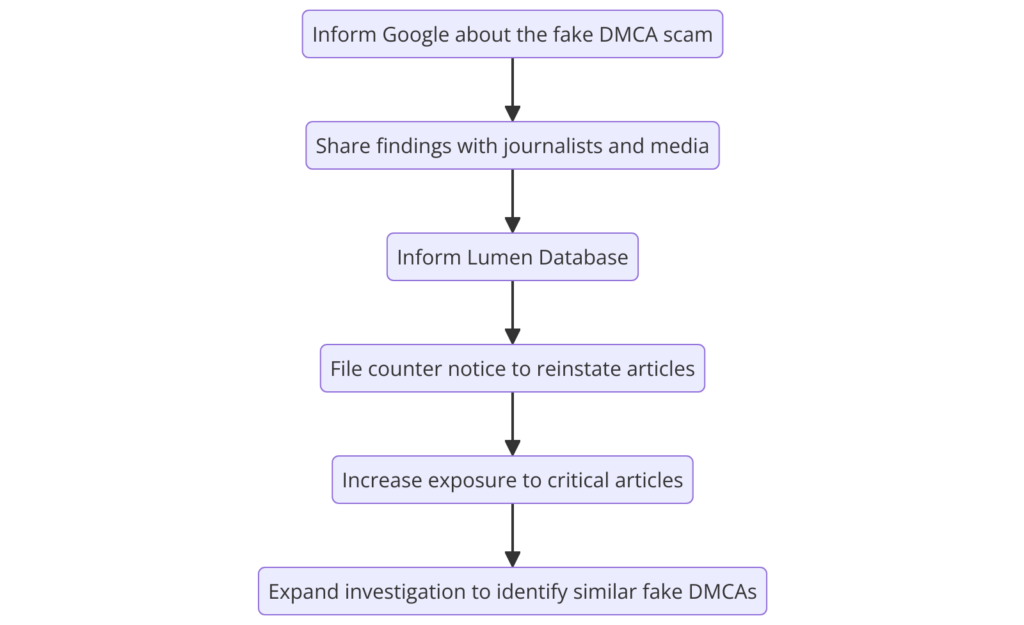
Since Hari Shankar Tibrewala made such efforts to hide something online, it seems fit to ensure that this article and our original review of Hari Shankar Tibrewala, including but not limited to user contributions, remain a permanent record for anyone interested in Hari Shankar Tibrewala.
A case perfect for the Streisand effect…
Potential Consequences for Hari Shankar Tibrewala
Under Florida Statute 831.01, the crime of Forgery is committed when a person falsifies, alters, counterfeits, or forges a document that carries “legal efficacy” with the intent to injure or defraud another person or entity.
Forging a document is considered a white-collar crime. It involves altering, changing, or modifying a document to deceive another person. It can also include passing along copies of documents that are known to be false. In many states in the US, falsifying a document is a crime punishable as a felony.

Additionally, under most laws, “fraud on the court” is where “a party has sentiently set in motion some unconscionable scheme calculated to interfere with the judicial system’s ability impartially to adjudicate a matter by improperly influencing the trier of fact or unfairly hampering the presentation of the opposing party’s claim or defense.” Cox v. Burke, 706 So. 2d 43, 46 (Fla. 5th DCA 1998) (quoting Aoude v. Mobil Oil Corp., 892 F.2d 1115, 1118 (1st Cir. 1989)).





